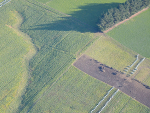Under the proposed changes announced last week, Fonterra farmers would be obliged to provide an extra 200 million litres of milk to competitors at a cheaper price from the 2012-13 season.
The proposal defies logic. There is no successful example in economics where a business is forced to subsidise its competitors.
Furthermore, the Government provides no guarantee the extra milk proposed to be made available to competitors would bring benefits in the form of cheaper milk to the New Zealand public or that the profits generated would remain in New Zealand.
Based on 2011-12 projections, no more than half the available 600 million litres of milk Fonterra farmers supplied to other processors this season will make it to the New Zealand domestic market. About 300 million litres (53%) is forecast to go to independent processors who primarily export product overseas. Of that 300 million litres, two-thirds is claimed by processors with some level of foreign ownership.
It makes no sense to take money out of New Zealanders' pockets to line those of foreign companies who take our resources and give nothing in return.
Less than six months ago close to 1500 Fonterra farmers presented submissions to MAF seeking changes to ensure the obsolete raw milk regulations worked as initially intended.
The suggested three-year finish is theoretically a good step. But how can farmers trust that in three years this aspect won't be changed, given that last year the minister assured farmers there would be no increase to our 600 million litre DIRA obligation?
It is important to remember that Fonterra Cooperative is not seeking to insulate itself from competition. Competition is good for our co-op as it ensures we stay lean and efficient.
However, the Government's legislation proposes New Zealand farmers subsidise increasingly foreign-owned, established processors who do not need DIRA milk to compete while doing little or nothing to ensure milk is available to those processors who need it most or who serve the domestic market.
The proposed legislation handicaps Fonterra farmers at a time when we are doing our utmost to ensure milk consumption in New Zealand increases, evidenced by our Milk in Schools, KickStart breakfast programmes, and our recent reduction of the wholesale milk price.
Fonterra is responsible for 25% of New Zealand's export income, bringing in millions of dollars, all of which stays in the economy and flows through to the pockets of all New Zealanders.
As a country we cannot afford to mess with this winning formula.
New Zealand needs enabling legislation that brings better returns to New Zealanders. Fonterra farmers will be sending this message to the Government in the strongest possible terms.
• Simon Couper is chairman of Fonterra Shareholders Council








